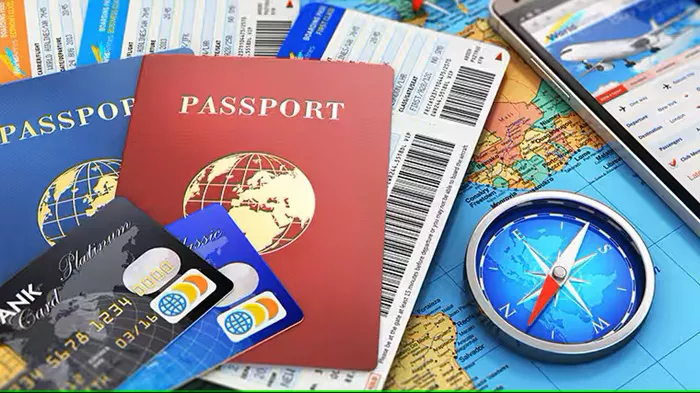Traveling is an exciting adventure, but it comes with its share of risks. From unforeseen cancellations to medical emergencies, there are numerous situations where having the right insurance coverage can make all the difference. In this guide, we’ll explore the ins and outs of holiday insurance, focusing on when to book, what’s covered, and how to choose the best policy for your needs.
Optimal Timing for Purchase
When should you book holiday insurance? The answer is simple: as soon as you’ve made your travel arrangements. Booking holiday insurance immediately after securing your holiday plans ensures coverage for any potential cancellations or changes before departure. This means that if something unexpected arises, such as illness or a family emergency, you’ll be protected from financial loss.
Pre-Departure Coverage
Pre-departure coverage is a crucial aspect of holiday insurance. It offers protection against cancellations due to illness, accidents, or other unforeseen circumstances. This means that if you or a family member falls ill before your trip, or if you experience a sudden change in plans due to unforeseen events, you can rest easy knowing that your financial investment is protected.
Policy Duration
Travel insurance policies vary in duration, from single trip policies to annual multi-trip policies. A single trip policy provides coverage for a specific trip, while an annual multi-trip policy covers multiple trips within a specified period, usually a year. It’s essential to understand the duration of your policy and what is covered during that period to ensure you have adequate protection for your travels.
Last-Minute Purchases
While it’s always best to purchase travel insurance as soon as you book your trip, it’s still possible to buy coverage at the last minute or even after departure. However, there are implications to consider. Last-minute purchases may have limitations on coverage, and some benefits may not be available if you wait until the last minute to buy insurance. Additionally, purchasing insurance after departure may leave you vulnerable to certain risks that occurred before coverage began.
Types of Travel Insurance:
There are several types of travel insurance policies available to suit different needs. Single trip policies provide coverage for a specific trip, while annual multi-trip policies cover multiple trips within a year. Additionally, there are specialized policies for activities like cruises, which may offer specific benefits tailored to the unique risks associated with cruising. Understanding the different types of policies available will help you choose the right coverage for your travels.
Coverage Details
Travel insurance typically covers a range of situations, including medical emergencies, lost luggage, and trip disruptions. Medical coverage can reimburse you for medical expenses incurred while traveling, including hospital stays, doctor visits, and emergency medical evacuation. Lost luggage coverage can reimburse you for the cost of replacing lost or stolen luggage, while trip disruption coverage can reimburse you for additional expenses incurred due to delays or cancellations.
Exclusions
While travel insurance offers valuable protection, it’s essential to be aware of common exclusions. Pre-existing medical conditions not declared on the policy are often excluded from coverage, so it’s crucial to disclose any relevant medical information when purchasing insurance. Additionally, certain activities or destinations may be excluded from coverage, so it’s essential to read the policy carefully to understand what is and isn’t covered.
How to Choose a Policy
Choosing the right travel insurance policy requires careful consideration of several factors. The length of your trip, destinations, and planned activities will all influence the type of coverage you need. For example, if you’re planning an adventurous trip with activities like skiing or scuba diving, you may need a policy that includes coverage for adventure sports. Similarly, if you’re traveling to a remote destination with limited access to medical care, you’ll want a policy that includes comprehensive medical coverage.
Financial Protection
Above all, travel insurance provides financial protection against the various risks associated with travel. Whether it’s covering the cost of a canceled trip, reimbursing you for lost luggage, or providing emergency medical care, travel insurance offers peace of mind knowing that you’re protected from unexpected expenses. Investing in travel insurance is not just about protecting your finances; it’s about ensuring that you can enjoy your travels with confidence, knowing that you’re prepared for whatever comes your way.
Conclusion
Booking holiday insurance is an essential step in ensuring a smooth and worry-free travel experience. By purchasing coverage as soon as you book your trip, you can rest easy knowing that you’re protected against cancellations, medical emergencies, and other unforeseen circumstances. With the right policy in place, you can travel with confidence, knowing that you have financial protection against the various risks of travel.
FAQs about Travel Insurance
1. How many days before should you buy travel insurance?
There isn’t a one-size-fits-all answer to this question, as the ideal timing for purchasing travel insurance can vary depending on your specific circumstances. However, a general rule of thumb is to buy travel insurance as soon as you’ve made your travel arrangements. This ensures that you’re covered for any unexpected events that may arise between booking your trip and your departure date.
2. How much in advance should I get travel insurance?
Ideally, you should purchase travel insurance shortly after booking your trip. This allows you to secure coverage for any potential cancellations or changes to your travel plans. While it’s possible to purchase travel insurance closer to your departure date, doing so may limit the coverage options available to you, so it’s best to buy insurance as soon as possible after booking your trip.
3. How long before holiday do I need insurance?
The length of time before your holiday that you need to purchase travel insurance depends on your individual preferences and circumstances. However, it’s generally recommended to buy insurance shortly after booking your trip to ensure you’re covered for any unforeseen events leading up to your departure. Waiting until the last minute to purchase insurance may leave you vulnerable to certain risks, so it’s best to plan ahead and secure coverage in advance.
4. How far in advance do I get travel insurance?
As mentioned earlier, it’s best to purchase travel insurance as soon as you’ve finalized your travel plans. This typically means buying insurance shortly after booking your trip. By doing so, you can enjoy peace of mind knowing that you’re protected against unexpected cancellations, medical emergencies, and other unforeseen events from the moment you book your holiday.
You Might Be Interested In




















